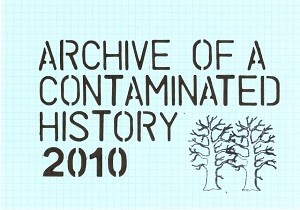The conference will begin on Thursday, 16th April 2015 with registration from 2:30 pm. On Friday, Saturday and Sunday a variety of lectures, plenary discussions and workshops will be offered. Shabbat services will take place on Friday evening and Saturday morning. The conference will end on Sunday, 19th April after lunch.
Presentations, Panel Discussions, Workshops, Shiurim
Ways to Equality
- Changing Liturgy to reflect the Change Role of Women / Engendered Liturgy: Empowerment, Not Police / Jewish Women and Sacred Space in Antiquity – Rabbi Dalia Marx (Jerusalem)
- From Rebbetzin to Maharat: the adventures of an unlikely feminist – Dina Brawer
- Training Rabbis for the 21st century – Rabbi Deborah Kahn-Harris (London)
- What makes a Jewish feminist perspective a “privileged” standpoint? – Hannah Peaceman
- The Women of the Wall נשות הכותל – Is this the right wall to fight against /for? – Ulrike Offenberg (Berlin), Rachel de Boor (Berlin)
- Gender Awareness and Jewish Education: Changing Traditions and The Divine Image – Felicia Epstein
- A pioneer in the Rabbinate – Rabbi Jackie Tabick
- Causing Trouble with Kol Isha; Women’s Voices in Public Shpere – Charlotte Fischer (UK)
Text Studies
- Zen Cohens: A Discussion of Jewish Women’s Power, Then and Now – S.L. (Sandi) Wisenberg, (Chicago)
- Touching tradition together: Cos Mirjam- Mirjams Cup (and Pessach Seder) – Rachel de Boor (Berlin)
- Is Intermarriage a Capital Crime in Judaism? – Laliv Clenman
- Rabbi, I am still a Virgin – Laliv Clenman
Gender and the Politics of Memory – Forced Labour and Forgotten Victims
- Regina: A Documentary on Regina Jonas – Diana Gróo (Budapest)
- Regina Jonas Redux – Gail Twersky Reimer (Boston)
- Return to a Burning House. Screening of the film and discussion with Anna Grusková (Bratislava)
- WWII Balkans: Collective Memories of Persecution and Slave Labor – Tania Reytan-Marincheshka (Sofia)
- Jewish Women under Forced Labor in Vienna and Germany (1939-1945) – Eleonore Lappin-Eppel (Vienna)
- Balkan Collective Memories of WWII Persecution and Slave Labor – Tania Reytan-Marincheshka (Sofia)
- WWII Greece: Individual Memories of Persecution and Forced Labour – Zdravka Mihaylova (Bulgaria)
- Forgotten Holocaust? Memorizing the genocide of European Roma – Joanna Talewicz-Kwiatkowska
Art, Memory and Identity: Cultural Identity Issues of the Second and Third Generation
- slip stream – Tanya Ury, (Cologne)
- Behind the Back of Time – an art-project about the loss of language and about Jewish traces in the region of Chernobyl, Ukraine – Marion Kahnemann (Dresden)
- Home – Bente Kahan (Wroclaw)
Coexistence
- Antisemitism is not a View – Anna Makówka-Kwapisiewicz (Krakow)
- Feminism, LGBTQIQ Practice and Rainbow Judaism – Rabbi Elizabeth Tikvah Sarah (UK)
- Jewish international initiatives like Jcall and J street towards a 2 state solution and their jewish counterparts- progressive for whom and what? – Halina Bendkowski (Berlin)
- Feminism, Intercultural Dialogue and Political Engagement – Tania Reytan-Marincheshka (Sofia)
Women in Politics
- Margarete Sussmann – Susman – Philosopher of Secular Messianism and the Jewish Renaissance – Rabbi Elisa Klapheck (Frankfurt/M)
- Shulamit Aloni – Critic from Within – Shulamit Reinharz (Boston)
- Jewish or Women’s Activism – Sonja Viličić (Belgrade)
- Jewish Politics, Women Politics, General Politics – The Experience of Project Kesher – Svetlana Yakimenko (Moscow)
- Ahead of Her Time: GRACE AGUILAR (1816-47), Voice of Emancipation – Rabbi James Baaden (London)
Reviving Jewish Culture in Europe
- Recovering Jewish Heritage – Sally Berkovic (UK)
- Preservation of Jewish Heritage in Wroclaw – Bente Kahan
Panel Discussions
- The Politics of Forgetting and Remembrance? Panel discussion with Diana Groó (Budapest), Rabbi Elisa Klapheck (Frankfurt/M.) and Gail Twersky Reimer (Boston), chair: Rabbi Elizabeth Tikvah Sarah
- Gender and the Politics of Memory: Bente Kahan (Wroclaw), Tania Reytan-Marincheshka (Sofia), Irina Shihova (Kishinew), Lara Dämmig (Berlin), Zdravka Mihaylova, Joanna Talewicz-Kwiatkowska, Chair: Eleonore Lappin-Eppel (Vienna)
- Reviving Jewish Education in Europe: with Anna Makówka-Kwapisiewicz (Kraków), Rabbi Dalia Marx (Jerusalem), Rabbi Sybil Sheridan (London), Sonja Viličić (Belgrade), Svetlana Yakimenko (Moscow), chair: Rabbi Sylvia Rothschild – cooperation with the Heinrich Böll Foundation
- Divorce – Gett – Screening of the film and panel discussion with Laliv Clenman (UK), Sharon Finkel Shenhav (Jerusalem), Dina Brawer. Chair: Rabbi Sylvia Rothschild (London)
Presenters
- Rabbi James Baaden, Sha’arei Tsedek, North London Reform Synagogue (UK)
- Halina Bendkowski, publicist (Berlin, Germany)
- Sally Berkovic (UK)
- Rachel de Boor, student (Berlin, Germany)
- Dina Brawer, Jewish Orthodox Feminist Alliance (UK)
- Laliv Clenman, Leo Baeck College (UK)
- Lara Dämmig, Bet Debora (Berlin, Germany)
- Felicia Epstein, director of the London School of Jewish Studies (UK)
- Charlotte Fischer, community organiser for Barnet and for the Jewish community via London Citizens (UK)
- Diana Groó, filmmaker (Budapest, Hungary)
- Anna Grusková, film director (Slovakia)
- Bente Kahan, performing artist, Chairperson of the Board of the Bente Kahan Foundation, Director of the Center for Jewish Culture and Education (Wroclaw, Poland)
- Rabbi Deborah Kahn-Harris, Principal of Leo Baeck College (London, UK)
- Marion Kahnemann, artist (Dresden, Germany)
- Rabbi Elisa Klapheck (Frankfurt/M., Germany)
- Eleonore Lappin-Eppel, historian (Vienna, Austria)
- Anna Makówka-Kwapisiewicz, Journalist, feminist and radical housewife, President of the Jewish Czulent Association (Krakow, Poland)
- Rabbi Dalia Marx, Hebrew Union College (Jerusalem, Israel)
- Zdravka Mihaylova, journalist (Bulgaria)
- Ulrike Offenberg (Berlin, Germany)
- Hannah Peaceman, philosopher (Frankfurt/Jena, Germany)
- Gail Twersky Reimer, Jewish Women’s Archive, Founding director (MA, USA)
- Shulamit Reinharz, Haassah-Brandeis Institute, Brandeis University (MA, USA)
- Tania Reytan-Marincheshka (Sofia, Bulgaria)
- Rabbi Sylvia Rothschild (London)
- Rabbi Elizabeth Tikvah Sarah (UK)
- Sharon Finkel Shenhav, international women’s rights lawyer, expert on marriage and divorce in Jewish Law (Jerusalem, Israel)
- Rabbi Sybil Sheridan, Chair of the Assembly of Reform Rabbis UK and Vice-chair of the Movement for Reform Judaism (UK)
- Rabbi Irit Shillor (UK)
- Rabbi Jackie Tabick (UK)
- Joanna Talewicz-Kwiatkowska (Krakow, Polen)
- Tanya Ury, artist (Cologne, Germany)
- Sonja Viličić, Executive director of Haver Serbia (Belgrade/Serbia)
- S.L. (Sandi) Wisenberg, writer (Chicago, USA)
- Svetlana Yakimenko, Project Kesher (Moscow, Russia)
Presentations, Panel Discussions, Workshops, Shiurim
Ahead of Her Time: GRACE AGUILAR (1816-47), Voice of Emancipation, Popular British Jewish writer of the early Victorian Era, Author of “The Spirit of Judaism” and “Women of Israel”, bestsellers of their day – a session on the prolific English Sephardic author Grace Aguilar, who was born two centuries ago, in 1816, and lived at a time when Jews, women and men alike, were still largely excluded from many spheres of public life, especially politics and higher education. Nevertheless, she published her works as a publicly visible and admired Jewish woman, addressing a range of Jewish topics (including the position of women in Judaism). Grace Aguilar significantly influenced the course of Jewish Emancipation in her own day, yet she also anticipated many of the concerns of Jewish feminists of our own times. James hopes to give an interesting account of her short and productive life – plus introduce excerpts from her two major works The Spirit of Judaism and Women of Israel.
Jewish international initiatives like Jcall and J street towards a 2 state solution and their jewish counterparts- progressive for whom and what?: I am a supporter of Jcall/ France and Jstreet /USA and I will report about the differences between how these organisations refer to Germany in contrast to Europe and the USA. I want to share my experiences and reflections after the French shootings and the different responses to it, especially as a Jcall representative for the Jstreet conference A Clear Choice for A Better Future, which took place at the end of March 2015 in Washington, USA. In the process I would like to get to know better the women from Bet Debora.
Touching tradition together: Cos Mirjam- Mirjams Cup (and Pessach Seder: Among the many reintroductions of oldrituals that enrich my personal and colloquial experience as Jew, is the ritual of Kos Mirjam- Mirjam`s Cup which caught my attention (and became subject of my BA paper). The cup, linking us to our people in the desert and wilderness and Gods gift of sweet water, is in my eyes one of the rituals that highlight the fruitful engagement of Jewish Feminism for active participation in a broader circle in tradition.
Why should we choose to introduce a “new” item to our traditional Pessach Seder? Does it disturb the “traditional” setting? What questions might arise and how do we explain the necessity of changing something familiar? How much “experimentation” is “allowed” in the frame of a Chag- Festival? What is the connection of experimenting and expressing our own way of being Jewish as we are: female, male, reform, secular, orthodox, straight, queer… ?
I don’t plan to answer these questions just by myself or within the frame of one single workshop, but hopefully looking closely at one ritual will create space for discussions and questions about the meaning of rituals, the importance of tradition(s) in our lives and for our communities/ friends/ families and to which extent we feel enabled to actively form our traditions and how we can feel empowered to touch tradition(s) with our fingertips.
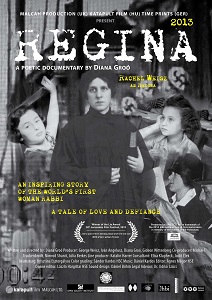 Regina tells the story of Regina Jonas (1902-1944), the world’s first female rabbi. Having grown up in Berlin’s slum as the daughter of an Orthodox Jewish peddler, Jonas was ordained in Berlin in 1935 and her incredible religious devotion brought hope and encouragement to many persecuted German Jews. Despite many rabbis emigrating due to Nazi persecution, Jonas admirably continued to work tirelessly in concentration camps and was tragically murdered in Auschwitz in 1944, aged 42 years old. Voiced by Rachel Weisz and executive produced by her father, George Weisz, Regina pays tribute to the inspiring woman, using the only surviving photo of Jonas as a leitmotif for the film. www.reginajonasmovie.com
Regina tells the story of Regina Jonas (1902-1944), the world’s first female rabbi. Having grown up in Berlin’s slum as the daughter of an Orthodox Jewish peddler, Jonas was ordained in Berlin in 1935 and her incredible religious devotion brought hope and encouragement to many persecuted German Jews. Despite many rabbis emigrating due to Nazi persecution, Jonas admirably continued to work tirelessly in concentration camps and was tragically murdered in Auschwitz in 1944, aged 42 years old. Voiced by Rachel Weisz and executive produced by her father, George Weisz, Regina pays tribute to the inspiring woman, using the only surviving photo of Jonas as a leitmotif for the film. www.reginajonasmovie.com
Awards: WARSAW PHOENIX Special AWARD- Warsaw Jewish Motifs FilmFestival 2014, HUNGARIAN FILMCRITICS AWARD 2014, LIA AWARD for dealing with Jewish Heritage, Jerusalem FilmFestival 2013, GRAND PRIX – Szolnok International Film Festival of Cultural Arts, History and Sciences 2013
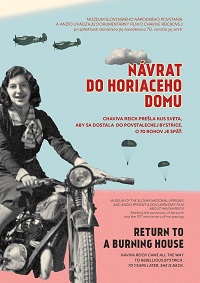 “Return to the Burning House” Remembrance of the Jewish resistance fighter Haviva Reick: Haviva Reick (1914-1944), born Marta Reick in Slovakia, emigrated to Palestine in 1939. She trained as a paratrooper and returned illegally to Slovakia in 1944 as part of a small group, after a rebellion had sprung up in resistance to the Wehrmacht invasion and the Slovakian government’s collaboration with the German forces. Reick was involved in relief and rescue actions for the Jewish population, as well as supporting the Jewish resistance. She was arrested and executed on November 20th 1944. While she is celebrated as a hero in Israel, Reick is largely unknown in Europe, even Slovakia. Anna Gruskova’s film “Return to the Burning House” (Slovakia, 2014) honors Reick as a Jewish resistance fighter and hero of the Slovakian uprising, but also raises the question why her life and achievements have received so little acknowledgment in the past decades, and the ways in which her legacy is actually of great significance to Europe and Israel today. www.haviva.sk/en
“Return to the Burning House” Remembrance of the Jewish resistance fighter Haviva Reick: Haviva Reick (1914-1944), born Marta Reick in Slovakia, emigrated to Palestine in 1939. She trained as a paratrooper and returned illegally to Slovakia in 1944 as part of a small group, after a rebellion had sprung up in resistance to the Wehrmacht invasion and the Slovakian government’s collaboration with the German forces. Reick was involved in relief and rescue actions for the Jewish population, as well as supporting the Jewish resistance. She was arrested and executed on November 20th 1944. While she is celebrated as a hero in Israel, Reick is largely unknown in Europe, even Slovakia. Anna Gruskova’s film “Return to the Burning House” (Slovakia, 2014) honors Reick as a Jewish resistance fighter and hero of the Slovakian uprising, but also raises the question why her life and achievements have received so little acknowledgment in the past decades, and the ways in which her legacy is actually of great significance to Europe and Israel today. www.haviva.sk/en
The project “Haviva- Return to European Remembrance” was funded with the support of the European Union under the Programme “Europe for Citizens”. Read more about the project here.
Home: Jewish European songs intertwined with Bente’s personal story beginning in 13th Century Spain and traveling across the continent up to present day Norway and Poland. The repertoire is mainly in Yiddish, but also includes songs in Ladino and Hebrew as well as Yiddish, mixed with Polish, Russian, Norwegian, Hungarian, German and English.
Behind the back of time – A Chernobyl project: Marion Kahnemann introduces her art project “Behind the back of time” (“Hinter dem Rücken der Zeit”), in which the artist engages with the traces of Jewish life and culture in the region around Chernobyl, historical overlays and the ambivalence of language. Marion Kahnemann’s interest in the topic was spurred by a working stay in Kiev in 2010, during which she visited a number of places in the region, including Pripiat and Chernobyl. Her work is an attempt to open up the issue to questions raised by what she had seen, read and been told by those who had witnessed the disaster themselves. She asks questions that refer to moments in time before as well as after the reactor accident, inquiring after our use of language, diversity and ideology. Marion Kahnemann brings together distinct, often contradictory narratives and draws connections to our present situation and circumstance, her motivation always being the need and desire to understand.
The Religious is Political: Margarete Susman – Philosopher of Secular Messianism and the Jewish Renaissance: Margarete Susman (1872-1966) is one of the Jewish Renaissance’s true pioneer minds. Her analysis of Judaism focuses primarily on examining the significance that religion can have in and for politics, and it is in this regard that her work is as relevant today as it was in the early 20th century. Elisa Klapheck has carried out the first comprehensive engagement with Susman’s complete works. In her monograph, Klapheck traces the spiritual biography of an unjustly forgotten religious thinker and philosopher who should be named in the same breath as her friends: Georg Simmel, Martin Buber, Gustav Landauer, Ernst Bloch or Franz Rosenzweig. Susman’s articles, essays and books on the spiritual meaning and importance of Judaism in and for Europe, on the revolution, the emancipation of women, the relationship between state and religion, as well as that between Judaism and Christianity contain important and thought-provoking impulses for discussion of these topics today. The talk will offer an introduction to Susman’s work.
Jewish Women under NS-Forced Labor in Vienna and Germany (1939-1945): Eleanore Lappin-Eppel introduces different forms of forced labor, as well as Jewish women’s coping strategies in the face of their circumstances. The persecution of Jewish mothers who had to leave their children with relatives or even in homes; young Zionists who were sent away to Germany for the asparagus harvest; Jewish communists who, in an act of resistance, rescued books from the dumping grounds they were working at; or Jewish-Hungarian mothers and their children who were deported to Vienna for forced labor are narratives that are subjective and unique, as are their sufferers’ responses and reactions. What they have in common however, is that all these actions were undertaken by people who were always and throughout acting as women, particularly in shared experiences.
Antisemitism is not a view: This interactive workshop will focus on Anti-Semitism, as well as on the traditional and unsatisfactory paths of conventional conflict resolution and the concept of creative conflict resolution. With the help of a special conflict dilemma method, we will achieve the essential conditions for tolerant social interaction: the willingness to mutually recognize the right to personal freedom. On this basis, the participants will have a chance to explore the democratic decision-making process as a valuable tool for dealing with conflicts in a novel way. Participants will have the chance to explore the questions of how we identify with and within our groups internally and externally, reflect on different contexts of identity and stereotypes, how identity changes with times and how discrimination affects our identity.
Aims – to introduce participants to the new training method, a renowned democracy education programme – the exchange of ideas of democracy – tools to apply at work or in everyday life.
Ulrike Offenberg, Rachel de Boor
The Women of the Wall נשות הכותל – Is this the right wall to fight against /for?
For more than 26 years now, Women of the Wall have been fighting for the right of women to held a communal service at the remnants of the Western Wall of the Jerusalem Temple. But the cross-denominational group which gathers there each month for a Rosh Hodesh prayer evokes a lot of ambiguity: Women, dressed in tallitot, some of them wearing kippot and tefillin, seem to be a provocation for the orthodox, the traditional and the secular sectors of the Israeli population as well. Some see their attempts at singing and praying aloud together as a desecration of this Holy Place, others don’t care for this religiously-laden site at all and find this sort of religious feminism suspect. Impediments, slandering and insults, spectacular imprisonments couldn’t stop them from meeting there every month and demanding equal prayer rights in the Women’s section. Over many years they had been ignored and ridiculed, but now the office of the Prime Minister has to deal with them. Who are these women and what do they actually want? Some insights and impressions from a year long observation. Plus invitation to discuss the topics.
What makes a Jewish feminist perspective a “privileged” standpoint?: This presentation draws a link between Jewish women’s empowerment and epistemological questions. It aims to show that Jewish women in a patriarchal society can develop a more accurate understanding of the conditions of society in light of their marginalization. Hence their standpoint is “privileged”. The claim of this presentation is that political practice that builds on the perspective of Jewish women contributes to the overall well-being of society.
The presentation is divided into three parts. First, criteria of what constitutes an accurate understanding of the conditions of society are developed in reference to Nancy Hartsock’s “standpoint theory” and Sandra Harding’s understanding of “strong objectivity”. Second, the specificity and privilege of a Jewish feminist standpoint is explicated by using examples of Jewish women’s marginalization today. Three, illuminates how a Jewish feminist standpoint contributes to political practice and a better society. Namely, by exposing contradictions, marginalization and inequity in a society. And positively put, by accounting for a heterogenetic and pluralistic society in light of change and globalization.
Regina Jonas Redux: In the summer of 2014, a special delegation of America women rabbis, scholars and lay leaders traveled to Germany and the Czech Republic to honor and learn about Regina Jonas. The group, which included the four “first” women Rabbis to be ordained by their respective denominations in America, eagerly embraced their foremother. What did they know about Jonas prior to this trip? Why, until this summer, did they not make more of what they knew or seek to know more ? How did they experience the connection to Jonas? And how does the American “rediscovery” of Regina Jonas differ from the European? These are a few of the questions that I hope to address in my presentation. The presentation will include a screening of a short 10 minute film that documents the meaning and impact of the encounter with a forgotten foremother.
Shulamit Aloni – Critic from Within: My paper will deal with the evolution of one of the most famous Israeli female politicians, Shulamit Aloni, who died on January 24, 2014 at the age of 85. Although (or because) she was a very successful political activist, the publicfrequently referred to as an ugly feminist. But she had excellent credentials and was fearless and effective. Born in Tel Aviv in 1928, Shulamit joined the socialist youth group, HashomerHatzair, and later served in the Palmach, the elite fighting force of the Haganah. During the 1948 Arab–Israeli War, Aloni was involved in military struggles for the Old City of Jerusalem and was captured by Jordanian forces. Following the establishment of the state, she worked with child refugees and helped establish a school for immigrant children. She taught school while studying law, and subsequently practiced law, hosted a radio show Outside Working Hours that dealt with human rights and women’s rights and wrote newspaper columns. Alonilater founded the Ratz political party and was a leader of the Meretz party.
Aloni evolved into a vocal critic of Israeli society. A year after she becameMinister of Education, she was forced to resign because of her outspoken statements on matters of religion. She criticized organized tours of Israeli high school pupils to concentration camps for turning Israeli youth into aggressive nationalists. Aloni was one of the first Israeli politicians to encourage dialogue with the Palestinians. She was on the board of Yesh Din, an organization focused on human rights in the Palestinian territories. She defended U.S. PresidentJimmy Carter’s use of the word “apartheid” in the title of his book, Palestine: Peace Not Apartheid.In a 2002 interview with American journalist Amy Goodman, she said that charges of antisemitism are used to suppress criticism of Israel.
In 1998, Aloni received the Emil Grunzweig Human Rights Award of the Association for Civil Rights in Israel andin 2000, she received the Israel Prize, for her lifetime achievements and special contribution to society and the State of Israel.My goal is to bring attention to this strong shaper of Israeli society.
Feminism, Intercultural Dialogue and Political Engagement: Drawing on the 20th century Jewish dialogical philosophy of Martin Buber, Franz Rosenzweig and Emmanuel Levinas, I will discuss the current state of poststructuralist feminist views on intercultural dialogue, post-formal conversation and the critical pragmatism of political engagement.
WWII Balkans: Collective Memories of Persecution and Slave Labor: This panel contribution will draw briefly on the WWII Balkans and focus on the role of collective memory of persecution of Jews and Roma, as well as available historiography about the multiple genocides and slave labour enforcement in the Western Balkans and Bulgaria during WWII. It will relate to the benefits as well as the drawbacks of using traumatic events and the claim of victim status, in forging group identity in the 21st century.
Feminism, LGBTQIQ Practice and Rainbow Judaism: In the 1970s, the Women’s Liberation Movement that emerged, in particular, in Britain, Europe and North America, focused on uniting women against Patriarchy. In the 1980s, the notion of the universality of women’s experience was increasingly challenged by groups of women who felt marginalised by the White Anglo-Saxon Protestant assumptions underlying ‘the sisterhood’ – not least, by Jewish women – and also by lesbians whose experience differed from those of their heterosexual sisters. As a result, the movement fractured into a plurality of ‘identity’ enclaves. Since the 1990s, Gay Liberation (which also emerged in the early 1970s) and Lesbian Separatism has given way to a rainbow alliance of LGBTQ people – more recently extended to include ‘I’ (intersex) and ‘Q’ (Questioning). More recently, a revival of feminism – particularly among young women – has raised questions about the relationship between feminism and this rainbow alliance. In this session, as someone who lived through all these developments, and now situates myself in the nexus that encompasses Jewish teaching and engagement, feminism, lesbianism and gender queer politics, I will examine how the Jewish emphasis on ‘doing’ facilitates a creative interplay between feminism and LGBTQIQ practice.
She will be speaking of her experiences as pioneer in the Rabbinate and as Head of the Beit Din of the Reform Movement in the UL
Forgotten Holocaust? Memorizing the genocide of European Roma: The night of the 2nd to the 3rd of August 1944 is the most tragic moment in the history of Roma and Sinti people. This was the night that the Germans started to liquidate the so called Zigeunerlager, the Gypsy concentration camp found in Auschwitz II. After the evening assembly, around 3000 Roma and Sinti from the „Gypsy concentration camp” were transferred to the gas chambers with trucks, where they were murdered.
„Zigeunerlager” is not the only camp where Sinti and Roma, who were on the list of groups doomed for genocide apart from the Jews, were murdered. Despite that, the genocide of the Sinti and Roma was forgotten over the years. While the newly established Federal Republic of Germany acknowledged the Jewish victims quite soon after the war, the Roma and Sinti crimes have been dismissed for decades.
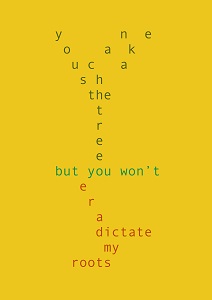 slip stream. September 2013 – revised 2014, Short version 4 sides for a 10/15-minute presentation: “Certain slips of the tongue in the course of a phrase give us sudden insight into ourselves by substituting one word for another, and the unwelcome word is a means whereby poetry escapes and perfumes the phrase. These words are a danger to the practical understanding of discourse. In like manner, certain acts. Faults sometimes – they are deeds – produce poetry. Though beautiful, these deeds are none the less a danger.” (P. 42 “Miracle of the Rose”, Jean Genet 1951, Penguin Books 1971)
slip stream. September 2013 – revised 2014, Short version 4 sides for a 10/15-minute presentation: “Certain slips of the tongue in the course of a phrase give us sudden insight into ourselves by substituting one word for another, and the unwelcome word is a means whereby poetry escapes and perfumes the phrase. These words are a danger to the practical understanding of discourse. In like manner, certain acts. Faults sometimes – they are deeds – produce poetry. Though beautiful, these deeds are none the less a danger.” (P. 42 “Miracle of the Rose”, Jean Genet 1951, Penguin Books 1971)
Although English is my mother tongue, I initially heard spoken German at a very early age, in London of the 50’s (having first moved to Germany permanently, in 1993) – my parents and grandparents were Jewish German refugees, who had fled Fascism to England, shortly before World War 2. Much later, I became a writer and a poet, not because I have a talent for language, but precisely because it is a challenge. Improvisation has allowed me to slip between linguistic formalities.
At sessions, my poetry has usually been a monologue but is occasionally spoken in dialogue with other performers, who speak or sing at sessions in Cologne or Düsseldorf. I believe any matters can be addressed in poetry; in an area where politicised art is absent, it is a challenge to activate poetry with activism so that a resulting presentation with musicians may be more than just entertainment.
Jewish or women’s activism: The workshop would be concentrated on the notions of “labelled” activism and on a spectrum of questions that challenge the idea of the labels itself, bringing the concepts of Jewish and women’s politics into the dialogue from each present position. Session will be interactive and will encourage sharing of thoughts, ideas, experiences and feelings regarding the subject. We will question and discuss if labelled activism is constructive through the issues of the ups and downs of labelled activism. There are also a range of other questions – for example, if labels empower us, giving us a clear sense of identity, or it faces us with a sort of “caged” experience, since they also position a set of rules that we are pressured to respect in order to stay within the label and to conform to the expected boundaries. In the other words, we will encourage discussion which will target the issue of identity/activism labels focusing on the question of Jewish and/or women’s activism, posing a complex platform from which each of us acts and feels differently. The sessions aim is to bring out different experiences and opinions about Jewish/women’s activism today.
Zen Cohens: A Discussion of Jewish Women’s Power, Then and Now: A Zen koan (pronounced ko-an) is usually a short, enigmatic sentence/riddle/paradox used in Zen meditation. There have also been Zen-Jewish parodies. I propose using a series of Zen Cohens (which I will write) as discussion-starters. I would write at least a dozen of them, hand them out to audience members, thus making them participants/actors. After each one is read (and translated), I would lead a timed discussion on the topic/riddle in English. If there are several women who speak another language, they could participate in their own discussion, and then report their points to the English-language group, with the help of a bilingual participant. The Cohens would be dense and paradoxical, and the program would be flexible. For example, if discussion is going well, we might agree to continue it, and maybe end up discussing one riddle for the whole session. I will dip into modern and contemporary Jewish history, midrash, and holiday rituals in order to fuel my koans. I think this format would be a way to vary the kinds of presentations at the conference.
Jewish Politics, Women Politics, General Politics – The Experience of Project Kesher: From experience gained through Project Kesher in today’s world, the issue of the Jewish world and the way Jewish leadership identifies itself is problematic. Where are we as Jews, as women, as citizens? How should we react to propaganda? Do we move our political action beyond the Jewish world? Project Kesher women in my region live through difficult times and have unique experiences. I want to share how our relationships, “kesher” (connection), overcame these difficulties, what problems arose and how much were women heard. I would also like to share information about how Project Kesher works in the area of social activism, creating synergy of Jewish and women’ activism.
More information about Project Kesher: http://www.projectkesher.org
Panel Discussions
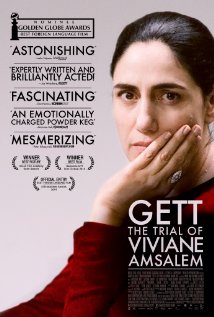 Gett – The trial of Vivianne Amsalem
Gett – The trial of Vivianne Amsalem
In Israel there is neither civil marriage nor civil divorce. Only rabbis can legitimate a marriage or its dissolution. But this dissolution is only possible with full consent from the husband, who in the end has more power than the judges. Viviane Amsalem has been applying for divorce for three years. But her husband Elisha will not agree. His cold intransigence, Viviane’s determination to fight for her freedom, and the ambiguous role of the judges shape a procedure in which tragedy vies with absurdity, and everything is brought out for judgment, apart from the initial request.
Israeli actress, screenwriter and director Ronit Elkabetz and Israeli screenwriter and director Shlomi Elkabetz’s feature film which they wrote, is inspired by the life of their mother and the third part of a trilogy which was preceded by “To Take a Wife” (2004) and “7 Days” (2008). It premiered in the 46th Directors’ Fortnight section at the 67th Cannes International Film Festival in 2014, was screened in the Contemporary World Cinema section at the 39th Toronto International Film Festival in 2014.
The film will be followed by a panel discussion on Jewish Divorce with Sharon Finkel Shenhav, an international women’s rights lawyer, who has been recognized as an expert on marriage and divorce in Jewish Law, Laliv Clenman, who is a lecturer in Rabbinic Literature at the Leo Baeck College, London, Dinah Brawer and others.
Reviving Jewish Education in Europe
Jewish tradition is truly alive only where it gets passed on. Over time, a diverse and dynamic infrastructure of Jewish education has been established throughout Europe. The multiplicity of Jewish ways of believing, whether orthodox or progressive, conservative or Hasidic, offer their own programs for children, adolescents and adults. But does that which is being offered really succeed in addressing and satisfying the variety of interests, wishes and visions of modern Jewish men and women? Apparently not quite: a number of initiatives that concern themselves with Jewish life from a cultural and social-activist rather than a purely religious vantage point have been built up over the years, looking also to appeal to a secularized audience while continuing to investigate Jewish identity.
The panel “Reviving Jewish Education in Europe“ was conceived as an opportunity to hear from speakers involved in educational projects and organizations in Serbia, Russia, Poland, England and France. They will introduce the work they do and discuss their experiences with new ways of Jewish learning. One of the primary goals of such a conversation is to explore the ways in which education might be strategically utilized in organizing an egalitarian and pluralist Jewishness; which topics that speak to Jewish concerns as well as to society as a whole, might be addressed? What are the ways in which Jewish educational work may help in developing democracy? Jewish education is not an instrument to separate and isolate Jewish men and women from the wider society, and by the same token, it should and is by no means strictly limited to Jews. On the contrary: knowledge of Jewish religion, history and culture are considered effective tools in the ongoing struggle against anti-Semitism, and so many Jewish education initiatives encourage and facilitate an open platform for dialogue between Jews and members of other denominations or those without religious affiliation.
with Anna Makówka-Kwapisiewicz (Kraków), Rabbi Dalia Marx (Jerusalem), Rabbi Sybil Sheridan (London), Sonja Viličić (Belgrade), Svetlana Yakimenko (Moscow), Chair: Rabbi Sylvia Rothschild (London)
In cooperation with the Heinrich-Böll-Stiftung
Presenters
 Rabbi James Baaden was a presenter at the second Bet Debora conference in Berlin in 2001 and has written for the Bet Debora journal. A congregational rabbi in London synagogues over most of the past 15 years, he took some time out to write a doctoral dissertation in Oxford on the “reception history” of Jewish-born philosopher Edith Stein, a canonised saint of the Catholic Church. Studying the ways in which the life and work of this German Jewish thinker have been interpreted and commemorated, he began to feel that the lives and achievements of many noteworthy Jewish women here in Britain had suffered neglect by comparison. He hopes that more attention can focus on important British Jewish poets such as Elaine Feinstein, Carol Rumens and Ruth Fainlight, and he takes a lively interest in the ideas and influence of philosopher Gillian Rose, who died only 10 years ago.
Rabbi James Baaden was a presenter at the second Bet Debora conference in Berlin in 2001 and has written for the Bet Debora journal. A congregational rabbi in London synagogues over most of the past 15 years, he took some time out to write a doctoral dissertation in Oxford on the “reception history” of Jewish-born philosopher Edith Stein, a canonised saint of the Catholic Church. Studying the ways in which the life and work of this German Jewish thinker have been interpreted and commemorated, he began to feel that the lives and achievements of many noteworthy Jewish women here in Britain had suffered neglect by comparison. He hopes that more attention can focus on important British Jewish poets such as Elaine Feinstein, Carol Rumens and Ruth Fainlight, and he takes a lively interest in the ideas and influence of philosopher Gillian Rose, who died only 10 years ago.
Halina Bendkowski, born in Poland is a sociologist and long life researcher and activist for feminism & gender democracy. Soon she will offer political peace touring through Israel.
Rachel de Boor is reaching the end of her MA in Jewish Studies at Potsdam University and is sorting out her ideas of what to do next. She spent five fruitful months in Jerusalem where she studied Hebrew and had the pleasure of joining the rabbinical students at the Hebrew Union College learning about liturgy and how to rethink our sources for modern purposes and put them into action. She has studied Jewish Studies and Religious Science in Potsdam since 2007, concentrating increasingly on feminist/ gender issues and (Jewish) religious questions in modernity. As a member of Hillel Germany and a scholarship student of the German Jewish Foundation Ernst Ludwig Ehrlich, as well as part of the team in the School of Jewish Theology in Potsdam, she wants to create (more) space for pluralistic Judaism and Jewish identities. She mostly spends her Shabbatot with her Community in Oranienburger Straße (traditional and egalitarian).
 Dina Brawer was born in Milan and raised in an Orthodox Jewish family and identifies herself as an Orthodox Feminist. She holds degrees in Jewish Studies, Psychology and Education and is currently a rabbinical student at Yeshivat Maharat in New York. She represents the New York based JOFA (Jewish Orthodox Feminist Alliance) organisation and in that capacity she is initiating a feminist movement within Orthodox Judaism in the UK. The Jewish Chronicle recently listed Dina in its Power 100 List of individuals who are most influential in shaping the UK Jewish community.
Dina Brawer was born in Milan and raised in an Orthodox Jewish family and identifies herself as an Orthodox Feminist. She holds degrees in Jewish Studies, Psychology and Education and is currently a rabbinical student at Yeshivat Maharat in New York. She represents the New York based JOFA (Jewish Orthodox Feminist Alliance) organisation and in that capacity she is initiating a feminist movement within Orthodox Judaism in the UK. The Jewish Chronicle recently listed Dina in its Power 100 List of individuals who are most influential in shaping the UK Jewish community.
 Dr Laliv Clenman is Lecturer in Rabbinic Literature at Leo Baeck College and Visiting Lecturer at King’s College London. A specialist in Rabbinics, including Talmud and Midrash, she is particularly interested in the nature of rabbinic law and in the complex relationship between halakhah and aggadah. Her research focuses on problems of identity and status, including intermarriage, gender, sexuality, mamzerut, the construction of Jewishness and the impact of halakhah on the individual. Her work on the classical sources is conducted in view of ongoing modern legal issues in Judaism and Jewish communities. In her role at Leo Baeck College she trains rabbinical students and consults with and runs workshops for the Reform and Liberal movements related to halakhic problems of current relevance.
Dr Laliv Clenman is Lecturer in Rabbinic Literature at Leo Baeck College and Visiting Lecturer at King’s College London. A specialist in Rabbinics, including Talmud and Midrash, she is particularly interested in the nature of rabbinic law and in the complex relationship between halakhah and aggadah. Her research focuses on problems of identity and status, including intermarriage, gender, sexuality, mamzerut, the construction of Jewishness and the impact of halakhah on the individual. Her work on the classical sources is conducted in view of ongoing modern legal issues in Judaism and Jewish communities. In her role at Leo Baeck College she trains rabbinical students and consults with and runs workshops for the Reform and Liberal movements related to halakhic problems of current relevance.
Lara Dämmig studied library science and management of cultural and non-profit organizations, and works for a Jewish organization in Berlin. She has done extensive research on Jewish history in Berlin’s Pankow district for several book projects and exhibitions at the Pankow 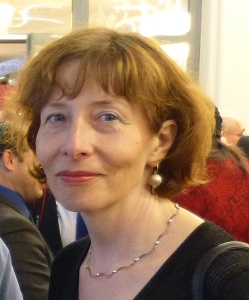 Museum. In the 1990ies she was instrumental in organising a Rosh Chodesh group and an egalitarian minyan in Berlin. In 1998, together with Elisa Klapheck and Rachel Monika Herweg, she launched Bet Debora, the Jewish women’s initiative, and organized the first three conferences for European female rabbis, cantors, Jewish activists, and scholars, held in Berlin between 1999 and 2003. She is co-chair of the Bet Debora association and one of the editors of the interreligious magazine INTA – Interreligiöses Forum.
Museum. In the 1990ies she was instrumental in organising a Rosh Chodesh group and an egalitarian minyan in Berlin. In 1998, together with Elisa Klapheck and Rachel Monika Herweg, she launched Bet Debora, the Jewish women’s initiative, and organized the first three conferences for European female rabbis, cantors, Jewish activists, and scholars, held in Berlin between 1999 and 2003. She is co-chair of the Bet Debora association and one of the editors of the interreligious magazine INTA – Interreligiöses Forum.
Felicia Epstein studied Bible on a graduate level at Bar Ilan University focusing on commentaries and comparative legal institutions. She is a Jewish educator and conceived of the gender-sensitive curriculum for Jewish schools. She has been working to introduce the curriculum and to develop awareness of gender issues in Jewish schools. She is a trustee and director of the London School of Jewish Studies.
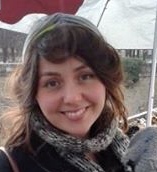 Charlotte Fischer joined the Citizens UK team in January 2013 as the Community Organiser for the Jewish community. Charlotte grew up in south east London and read history and politics at Oxford. She studied Arabic in Damascus and then worked in political mediation in Geneva before changing track to work in conflict history in Cyprus, Spain, Northern Ireland and South Africa. A dual national, she spent two years in South Africa, co-authoring a book on the history of South African education and as the executive director of the South African Religious Action Centre, where she organised to take on a ban put on Jewish women singing. In 2014 she won the Annemarie Schimmel Award at the Muslim News Awards for her work with synagogues and the Somali Bravanese Welfare Association after their building was burnt down in an arson attack.
Charlotte Fischer joined the Citizens UK team in January 2013 as the Community Organiser for the Jewish community. Charlotte grew up in south east London and read history and politics at Oxford. She studied Arabic in Damascus and then worked in political mediation in Geneva before changing track to work in conflict history in Cyprus, Spain, Northern Ireland and South Africa. A dual national, she spent two years in South Africa, co-authoring a book on the history of South African education and as the executive director of the South African Religious Action Centre, where she organised to take on a ban put on Jewish women singing. In 2014 she won the Annemarie Schimmel Award at the Muslim News Awards for her work with synagogues and the Somali Bravanese Welfare Association after their building was burnt down in an arson attack.
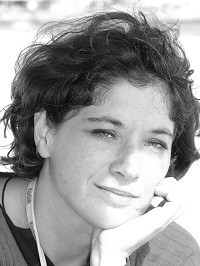 Diana Groó is a feature and documentary director, she received her education in Budapest, obtaining a Bachelor’s degree in French-Hebrew from the Faculty of Arts, ELTE, followed by a Master’s in TV and Film Directing at the Hungarian Film Academy in 2000. Co-founder of Katapultfilm studio (2002) and DunaDock (2013).
Diana Groó is a feature and documentary director, she received her education in Budapest, obtaining a Bachelor’s degree in French-Hebrew from the Faculty of Arts, ELTE, followed by a Master’s in TV and Film Directing at the Hungarian Film Academy in 2000. Co-founder of Katapultfilm studio (2002) and DunaDock (2013).
After her prize winning shorts and documentaries, her debut feature film was A Miracle in Cracow, a Central European Jewish magic tale, in Polish-Hungarian coproduction in 2004 . Her documentary What lies ahead- about disabled children of the Hungarian Pető Institute, was awarded by the Jury of Verzio 4 Int. Human Rights Doc. Filmfestival in 2005. Her second feature film Vespa (2010) /a road movie of a Romani teenager/, awarded by UNICEF and the Dialog Prize for Intercultural Communication in Cottbus, got the Best Director’s award in Geneva and Los Angeles. Her “Wild Imagination” art-history series, presenting the art of Marc Chagall, August Renoir, Pieter Bruegel and Henri Rousseau opened the contemporary art exhibition of Herzlya Muzeum in Israel in 2005. The “Intervisual Mediaprogram between Painting & Cinema” at Haifa University, involved the serie into its courses along with the works of Peter Greenaway, Derek Jarman and others.
In 2008 Diana premiered first time in Hungary the stage adaptation of Katherine Kressman Taylor’s prophetic novel about the Nazism “Address Unknown”, that she staged also in Sao Paulo Theatro Hebraica in 2011. Her last work is “Regina” (2013) a poetic documentary about the world’s first woman rabbi is awarded Lia Award for dealing with Jewish Heritage at 30th Jerusalem Filmfestival.
Anna Grusková is a Czech-Slovak film, theatre and radio author and director. She graduated in Theatre and Film Studies at Charles University in Prague, Czech Republic. She has initiated and led many domestic and international projects with both artistic and social dimensions (America, Nevesty / Brides, Sarcophagi and ATMs). She has also participated as an author in other works (Donaudrama, Chance ’89). Her drama The Woman Rabbi about the fate of the Bratislava Jewish activist Gisi Fleischmann was staged in the Slovak National Theatre and the Theatre Reon in Bologna. Among others, she also directed the theatre and film installation Danube Drama or Filthy coffee, cheap cigarettes, The Rabbi Woman (2012), documentary film Return to the Burning House (2014), etc. She lives in Bratislava and enjoys cycling.
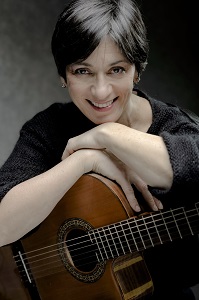 Bente Kahan is a Norwegian-born Jewish actress, musician, director and playwright who received her formal training in the performing arts in Tel-Aviv and New York and has been working as a concert and stage artist since 1981. She began her career in “Habima”, Israel’s national theatre, and “Nationaltheatret” in Norway. Her first Yiddish performance was in Oslo in 1983, and after several years as a member of diverse Oslo ensembles she started to perform in her own monodramas, co-authored with the Norwegian stage director Ellen Foyn Bruun. In 1990 she founded a production company, “Teater Dybbuk – Oslo”, and for the last 20 years has toured internationally with her own concerts and plays. Bente has been repeatedly called upon to perform in connection with official commemorations paying homage to the victims of the Holocaust. In 2000 she was awarded a Lifelong Stipend for Artists by the Norwegian Art Council for her artistic achievements.
Bente Kahan is a Norwegian-born Jewish actress, musician, director and playwright who received her formal training in the performing arts in Tel-Aviv and New York and has been working as a concert and stage artist since 1981. She began her career in “Habima”, Israel’s national theatre, and “Nationaltheatret” in Norway. Her first Yiddish performance was in Oslo in 1983, and after several years as a member of diverse Oslo ensembles she started to perform in her own monodramas, co-authored with the Norwegian stage director Ellen Foyn Bruun. In 1990 she founded a production company, “Teater Dybbuk – Oslo”, and for the last 20 years has toured internationally with her own concerts and plays. Bente has been repeatedly called upon to perform in connection with official commemorations paying homage to the victims of the Holocaust. In 2000 she was awarded a Lifelong Stipend for Artists by the Norwegian Art Council for her artistic achievements.
In 2001 she moved with her family from Norway to Poland and in 2005 she became the director of the Center for Jewish Culture and Education in The White Stork Synagogue in Wroclaw, Poland. The following year, she founded The Bente Kahan Foundation. Its main goals were to find funds to run the Center in the synagogue and to restore the historic building (completed in May 2010 with an EEA grant, the city of Wroclaw and the Union of Jewish Religious Communities in Poland). Under Bente’s leadership, this historic site serves as a prestigious venue for concerts, theatre performances and exhibitions and has become a place associated with tolerance and cultural diversity. Since the opening of the Center, more than 25,000 young people from Lower Silesia have attended theatre performances in the synagogue, including “Voices from Theresienstadt”, “Wallstrasse 13”, “ Mendel Rosenbusch” and “Songs from the Ghetto”, written and directed by Bente Kahan and performed by local Polish actors and musicians. www.fbk.org.pl www.bentekahan.eu
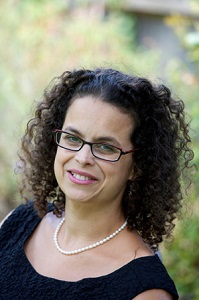 Rabbi Deborah Kahn-Harris has been the Principal of Leo Baeck College in London since September 2011. Prior to her appointment, she was a member of the rabbinic team at Sha’arei Tsedek/North London Reform Synagogue and lectured in Bible at LBC. She holds a PhD in Bible from the University of Sheffield, with a specialisation in feminist Bible criticism and midrash, and has previously served as the Teaching Fellow in Judaism at SOAS, University of London. She is married with two children.
Rabbi Deborah Kahn-Harris has been the Principal of Leo Baeck College in London since September 2011. Prior to her appointment, she was a member of the rabbinic team at Sha’arei Tsedek/North London Reform Synagogue and lectured in Bible at LBC. She holds a PhD in Bible from the University of Sheffield, with a specialisation in feminist Bible criticism and midrash, and has previously served as the Teaching Fellow in Judaism at SOAS, University of London. She is married with two children.
Marion Kahnemann (born 1960) lives and works as a sculptor in Dresden, where she attended art college and was awarded the city’s art promotion prize in 1993. Since 1998, she has taken part in numerous exhibitions in Germany and abroad, including ones in Dresden, Belrin, Sofia, Erfurt, Suhl, Chemnitz, St Petersburg, Wroclaw, Kiev, Basel, Uppsala and Oakland-California; last year she had a solo show in Madison-Wisconsin, where she presented her most recent major project which investigates traces of Jewish life and culture in the region around Chernobyl.
Marion Kahnemann was a student at Paideia, the European Institute for Jewish Studies, in Stockholm in 2000-2001, a period that gave her much inspiration for her practice. Several of her works are situated in public spaces: she constructed a fountain for the Elsa-Fenske-Home for the Elderly in 1998 in Dresden; designed a wall at Beit haGalgalim, an institution for handicapped people in 2000 in Hezrliya-Israel, and at Paideia in 2002. She created a memorial for the deportation of Dresden’s Jews in 2001 at Neustadt-train station in Dresden, and three “Denk-Orte” (memorial places of reflection) in 2007-2009 which confront the gradual systematic exclusion of the Jews that took place in the city from the 1930s onwards. www.mkahnemann.de
Elisa Klapheck (b. 1962, Düsseldorf) has been involved in the renewal of Jewish religious tradition since the 1990s. In 1999, she was one of the founders of “Bet Debora.” In the same year Klapheck published a book about the first female rabbi in history (Regina Jonas 1902-1944). As a consequence, Klapheck decided to strive for the rabbinate herself. In 2004 she received her smicha at the Aleph Rabbinic Program. In the following four years she lived in Amsterdam and became as the rabbi of “Beit Ha’Chidush” the first female rabbi in Dutch history. In 2009 Klapheck moved back to Germany and is since then rabbi of the “Egalitarian Minyan” in the Jewish Community of Frankfurt a. M. An important topic of hers is the relationship between political ideas and Judaism. Among her publications are the books “Fräulein Rabbiner Jonas – The Story of the First Woman Rabbi” (1999, English translation 2004), “Bertha Pappenheim – Gebete/Prayers” (with Lara Dämmig, 2003), and “Thus I Became a Woman Rabbi: Jewish Challenges Here and Now” (2005). She recently obtained her doctoral degree with a dissertation on the Jewish religious philosopher Margarete Susman. www.elisa-klapheck.de
tradition since the 1990s. In 1999, she was one of the founders of “Bet Debora.” In the same year Klapheck published a book about the first female rabbi in history (Regina Jonas 1902-1944). As a consequence, Klapheck decided to strive for the rabbinate herself. In 2004 she received her smicha at the Aleph Rabbinic Program. In the following four years she lived in Amsterdam and became as the rabbi of “Beit Ha’Chidush” the first female rabbi in Dutch history. In 2009 Klapheck moved back to Germany and is since then rabbi of the “Egalitarian Minyan” in the Jewish Community of Frankfurt a. M. An important topic of hers is the relationship between political ideas and Judaism. Among her publications are the books “Fräulein Rabbiner Jonas – The Story of the First Woman Rabbi” (1999, English translation 2004), “Bertha Pappenheim – Gebete/Prayers” (with Lara Dämmig, 2003), and “Thus I Became a Woman Rabbi: Jewish Challenges Here and Now” (2005). She recently obtained her doctoral degree with a dissertation on the Jewish religious philosopher Margarete Susman. www.elisa-klapheck.de
Eleonore Lappin-Eppel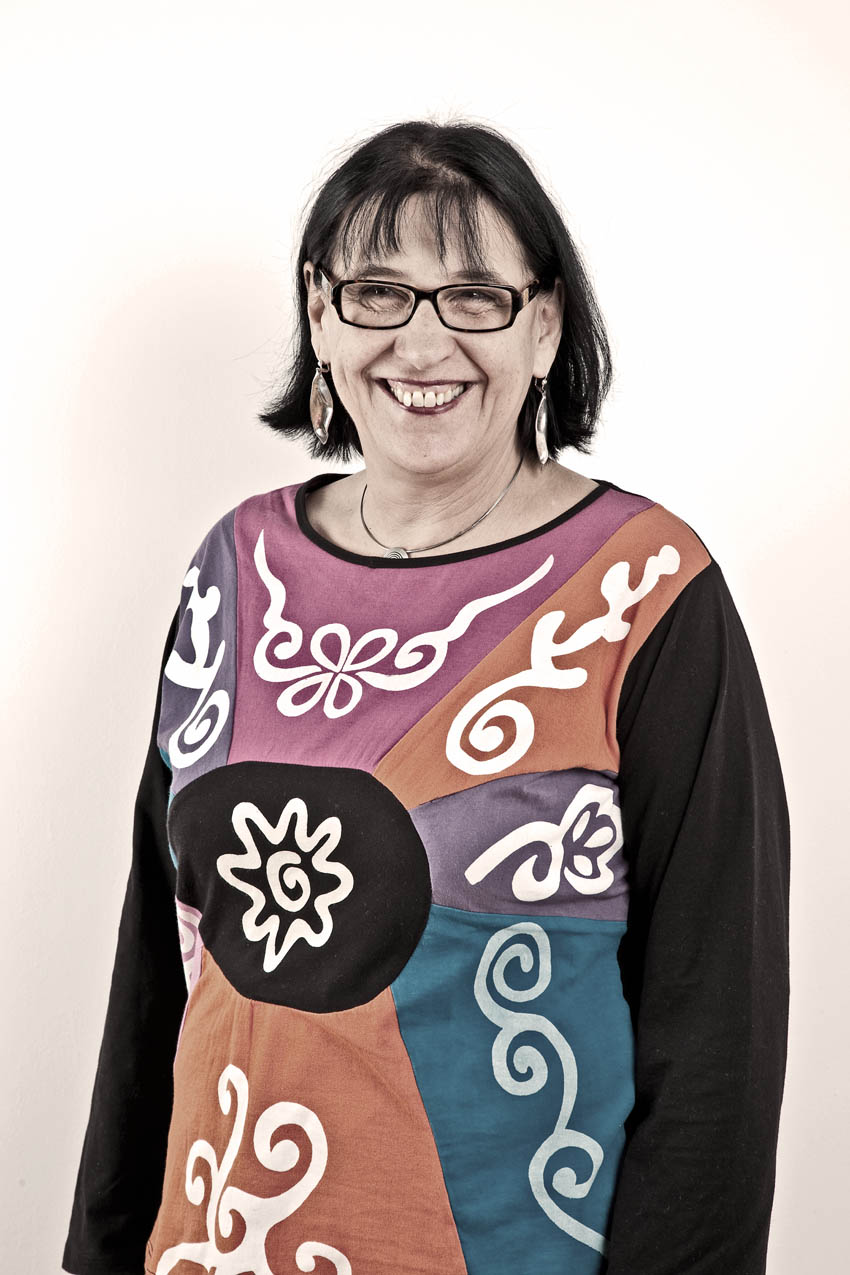 was born in Vienna, where she attended primary school and secondary school. Afterwards she studied German, English and comparative literature in the USA and in Israel. She earned her PhD at Hebrew University in Jerusalem with a dissertation on Martin Buber. After returning to Austria, she worked for the most part in research. Today, she is a researcher at the Institute of Culture Studies and Theatre History, a part of the Austrian Academy of Sciences, and teaches and conducts research at the Centre of Jewish studies at the University of Graz. Her main areas of interest are Jewish social and intellectual history of the 19th and 20th centuries, as well as Holocaust studies.
was born in Vienna, where she attended primary school and secondary school. Afterwards she studied German, English and comparative literature in the USA and in Israel. She earned her PhD at Hebrew University in Jerusalem with a dissertation on Martin Buber. After returning to Austria, she worked for the most part in research. Today, she is a researcher at the Institute of Culture Studies and Theatre History, a part of the Austrian Academy of Sciences, and teaches and conducts research at the Centre of Jewish studies at the University of Graz. Her main areas of interest are Jewish social and intellectual history of the 19th and 20th centuries, as well as Holocaust studies.
Eleonore Lappin-Eppel is a founding member of the liberal Jewish congregation Or Chadasch in Vienna and a member of the board of the Platform for Interfaith Encounters and the Coordinating Committee for Christian-Jewish Cooperation.
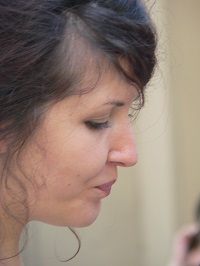 Anna Makówka-Kwapisiewicz – historian, journalist and anti-discrimination coach. Graduated with a degree in history from Nicolaus Copernicus University in Torun. Since 2007 she has been coordinating the Jewish Literary Salon in Krakow and working in cooperation with the Polish-Jewish publishing house Austeria, with the Karta Institute Warsaw, the Internationaler Bund Polska as well as Radio Krakow Malopolska. Author of the “Majse” publishing project: one of her books, “Majn Alef Bejs”, won the main prize at one of the most important international events dedicated to the children’s publishing and multimedia industry around the world, the Bologna Children’s Book Fair. Currently also working with Stefan Batory Foundation as an independent expert in the field of combating discrimination and counteracting exclusion. Chairwoman of the Jewish Association Czulent.
Anna Makówka-Kwapisiewicz – historian, journalist and anti-discrimination coach. Graduated with a degree in history from Nicolaus Copernicus University in Torun. Since 2007 she has been coordinating the Jewish Literary Salon in Krakow and working in cooperation with the Polish-Jewish publishing house Austeria, with the Karta Institute Warsaw, the Internationaler Bund Polska as well as Radio Krakow Malopolska. Author of the “Majse” publishing project: one of her books, “Majn Alef Bejs”, won the main prize at one of the most important international events dedicated to the children’s publishing and multimedia industry around the world, the Bologna Children’s Book Fair. Currently also working with Stefan Batory Foundation as an independent expert in the field of combating discrimination and counteracting exclusion. Chairwoman of the Jewish Association Czulent.
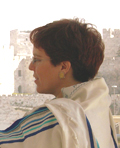 Rabbi Dalia Marx (PhD) is an Associate professor of liturgy and midrash at the Jerusalem campus of Hebrew Union College-JIR, and teaches in various academic institutions in Israel and Europe. Marx, tenth generation in Jerusalem, earned her doctorate at the Hebrew University and her rabbinic ordination at HUC-JIR in Jerusalem and Cincinnati. She is involved in various research projects and is active in promoting liberal Judaism in Israel. Marx writes for academic and popular journals and publications. She is the author of When I Sleep and when I Wake: On Prayers between Dusk and Dawn (Yediot Sfarim 2010, in Hebrew), A Feminist Commentary of the Babylonian Talmud (Mohr Siebeck, 2013, in English) and the co-editor of a few books.
Rabbi Dalia Marx (PhD) is an Associate professor of liturgy and midrash at the Jerusalem campus of Hebrew Union College-JIR, and teaches in various academic institutions in Israel and Europe. Marx, tenth generation in Jerusalem, earned her doctorate at the Hebrew University and her rabbinic ordination at HUC-JIR in Jerusalem and Cincinnati. She is involved in various research projects and is active in promoting liberal Judaism in Israel. Marx writes for academic and popular journals and publications. She is the author of When I Sleep and when I Wake: On Prayers between Dusk and Dawn (Yediot Sfarim 2010, in Hebrew), A Feminist Commentary of the Babylonian Talmud (Mohr Siebeck, 2013, in English) and the co-editor of a few books.
Zdravka Mihaylova: Born in Sofia, Bulgaria. She graduated in Journalism and Mass Media from the University of Sofia St. Clement Ohridsky. Master’s degree in European Organisations and Diplomacy at the Law Faculty of Athens University, has specialized modern Greek literature at Athens University under the tutelage of Prof. Nasos Vayenas. She has worked as a journalist at the Broadcasting in Greek programme of the state-owned Bulgarian Radio. She is contributing to various publications with texts on cultural subjects. Since 1994 she works for the Ministry of Foreign Affairs of Bulgaria, Greece & Cyprus desk. She has been posted three times at the Bulgarian embassy in Athens (1995-1998), (2002-2005) and (2009-2013). She has translated from Greek into Bulgarian thirty five books of prose, poetry, short stories, essays and modern theatre, as well as a few ones Bulgarian into Greek.
She has a long-standing collaboration with the Ministry of Culture of Greece, the National Book Center (EKEBI), The Greek Culture Foundation (ΕΙΠ), EKEMEL (Greek Center for Translation of European Literature), the International Writers’ and Translators’ Center on Rhodes (IWTC). In 2012-2013 she has attended the seminar “Literature of the Holcaust and the Resistance” concerning the genocide of Greek and European Jews (1942-1945), it’s history, memory, and representation. The seminar was conducted by the historian Odette Vassard-Varon at the Jewish Museum in Athens.
She has several journalist publications on Greek Jewry, amongst them on Sephardic musical legacy (the singer Roza Eshkenazi), an interview with the Holocaust survivor Iossif Ventoura, an interview with Myrto Thecharous, professor of Biblical Hebrew at the Biblical College in Athens etc. Z. Mihaylova is regularly contributing to Bulgarian and Greek literary reviews, has produced radio shows on cultural issues and has participated in international conferences, concerning literature, language skills, culture, anthropology, in TV productions on Greece-related topics etc.
She has participated in international conferences, workshops and seminars on modern Greek culture, history, and literary translation. She is a member of the Association of Bulgarian Authors, foreign member of the Authors’ Society (Athens), member of the Journalists’ Union of Bulgaria, of the Union of Translators of Bulgaria, of the Society of Modern Greek Studies K. Palamas” (Bulgaria). She is the Vice-president of the Bulgarian branch on the International society of Kazantzakis’ Friends.
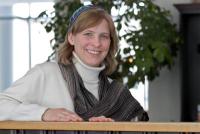 Ulrike Offenberg is an historian and has specialized in German-Jewish history, gaining her PhD with a study on Jewish communities in East Germany. She works as a lecturer in Bible and Medieval Commentaries at Potsdam University and has a special interest in Liturgy and Minhagim. She spent last year in Jerusalem as a rabbinical student and took an aktive part in “Women of the Wall” and in other groups of liturgical renewal. She is a mother of three daughters and lives in Berlin.
Ulrike Offenberg is an historian and has specialized in German-Jewish history, gaining her PhD with a study on Jewish communities in East Germany. She works as a lecturer in Bible and Medieval Commentaries at Potsdam University and has a special interest in Liturgy and Minhagim. She spent last year in Jerusalem as a rabbinical student and took an aktive part in “Women of the Wall” and in other groups of liturgical renewal. She is a mother of three daughters and lives in Berlin.
Hannah Peaceman (born 1991) graduated in Philosophy (MSc. Philosophy of the Social Sciences, London School of Economics and Political Science) in 2014. Currently she is studying Philosophy in Frankfurt and Jena in preparation of her PhD in the field of critical political philosophy. She works on questions of gender-equality in the academic field as well as feminist philosophy (epistemology, critics of ideology, intersectionality). Hannah holds a scholarship from the German-Jewish Ernst-Ludwig Ehrlich scholarship foundation.
Gail Twersky Reimer is the Founding Director of the Jewish Women’s Archive and led the organization for its first two decades, initiating plans for its digital archive, oral history projects, and educational programs, producing Making Trouble, JWA’s film on women comedians, and teaching and lecturing widely on Jewish women’s history. Reimer holds a PhD in English and American Literature and has co-edited two anthologies of Jewish women’s writings – Reading Ruth:Women Reclaim a Sacred Story and Beginning Anew: A Woman’s Companion to the High Holy Days.She has been honored with numerous awards including the Dr. Benjamin J. Shevach Memorial Award for distinguished achievement in Jewish educational leadership by Hebrew College (2011); the American Jewish Distinguished Service Award from Hebrew Union College-Jewish Institute of Religion (2012) and the Lee Max Friedman award for distinguished service in the field of American Jewish History by the American Jewish Historical Society (2014)
Shulamit Reinharz, Ph.D., is the Joseph Potofsky Professor of Sociology at Brandeis University located near Boston, MA. In 1997, she established the Hadassah-Brandeis Institute (HBI), the world only academic institution devoted to the study of the intersection of Jews and gender. In 2001, she established the Women’s Studies Research Center and the Kniznick Gallery for Feminist Art, also at Brandeis University. She is the author of 13 books.
Tania Reytan-Marincheshka is a university professor, performs scholarly research and publishes. Her background is in History of International Relations, International Law, Social Anthropology and Human Rights. She is part of the Bet Debora movement since 2003 and organized the 2009 Bet Debora conference in Sofia, Bulgaria.
Rabbi Sylvia Rothschild grew up in The Bradford Synagogue, the third oldest Reform Synagogue in England, where her family were actively involved. After completing a psychology degree at Manchester University she worked as a psychiatric social worker before entering the Leo Baeck College and gaining semicha in 1987 – a few months after the birth of her daughter. She was the minister of the Bromley Reform Synagogue from 1987 – 2002 and left there to join the Wimbledon Synagogue and to pioneer the model of job sharing in the rabbinate with Rabbi Sybil Sheridan. http://rabbisylviarothschild.wordpress.com
Rabbi Elli Tikvah Sarah
Elizabeth (Elli) Tikvah Sarah graduated in Sociology (BSc. Soc., London School of Economics, 1977). A radical feminist, who came out as a lesbian in 1978. After engaging in feminist research, writing and editing, she entered the Leo Baeck College, where she was ordained in 1989. Subsequently becoming a rabbinic tutor in the mid-1990s, she also co-taught the LBC Classical Hebrew and Spirituality courses, and chaired the Rabbinic In-service Training programme team.
After serving a Reform synagogue (1989-1994), Elli was Director of Programmes for Reform Judaism (1994-1997). She then joined Liberal Judaism and served Leicester Progressive Jewish Congregation (1998-2000). She has been rabbi of Brighton & Hove Progressive Synagogue since December 2000.
A pioneer in the area of LGBT inclusion, Elli initiated a process within Liberal Judaism, which culminated in a new policy and the publication of an anthology of ceremonies for civil partners in December 2005.Her research on the first woman Rabbi, Regina Jonas has been included in the Open University module A332, ‘Why is Religion Controversial?’ She has also been active in Jewish/Christian and Jewish/Christian/ Muslim engagement. She is currently a member of the Council of Christians and Jews Theology Group.
Elli has edited four books, contributed over four dozen articles and several poems to various journals and anthologies, writes a monthly article for Sussex Jewish News, and is author of Trouble-Making Judaism (David Paul Books, 2012). She is currently working on two books: Beyond Binary Tyranny: A Jewish Journey; and, Word-maps of the Holy Land.
In March 2006, following their Civil Partnership, Elli and her partner, Jess Wood, were married at BHPS. They plan to enter into a Civil Marriage in 2016 on their 10th anniversary.
Sharon Finkel Shenhav, an international women’s rights lawyer, has been recognized as 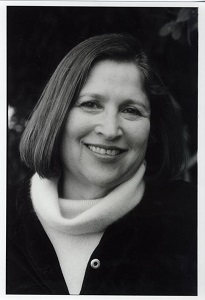 an expert on marriage and divorce in Jewish Law. Based in Jerusalem, Israel, she was educated in the US. Receiving a B.A. in Sociology from the University of Chicago and a J.D. (Doctor of Jurisprudence) from the Georgetown University School of Law in Washington, D.C., she has represented hundreds of women in Rabbinical Courts in Israel. In 1997, Sharon established and became the Director of the International Jewish Women’s Rights Project, a joint project of the International Council of Jewish Women and the Jerusalem Center for Public Affairs, which is committed to restoring fairness and justice for women in the religious divorce process. Sharon has lectured in over 25 countries and has served as a consultant to lawyers, judges, rabbis and legislators worldwide. She has been a member of the Israeli delegation to the United Nations Commission on Status of Women. Sharon has participated in many inter-faith conferences worldwide and was the organizer of an inter-faith conference on marriage and divorce held at the Rockefeller Foundation Conference Center in Bellagio, Italy in 2004. In December, 2002, Sharon was elected to the Commission to Appoint Dayanim (Religious Court Judges) in Israel. She was re-elected to a second three year term in December, 2005 and was the only woman to serve on this 10 person statutory commission, which includes the two Chief Rabbis, Minister of Religious Affairs, Minister of Justice, two dayanim, two lawyers representing the Bar Association and two Members of Knesset. In 2009 Sharon was awarded the Israeli Feminist of the Year Award by the National Council of Jewish Women.
an expert on marriage and divorce in Jewish Law. Based in Jerusalem, Israel, she was educated in the US. Receiving a B.A. in Sociology from the University of Chicago and a J.D. (Doctor of Jurisprudence) from the Georgetown University School of Law in Washington, D.C., she has represented hundreds of women in Rabbinical Courts in Israel. In 1997, Sharon established and became the Director of the International Jewish Women’s Rights Project, a joint project of the International Council of Jewish Women and the Jerusalem Center for Public Affairs, which is committed to restoring fairness and justice for women in the religious divorce process. Sharon has lectured in over 25 countries and has served as a consultant to lawyers, judges, rabbis and legislators worldwide. She has been a member of the Israeli delegation to the United Nations Commission on Status of Women. Sharon has participated in many inter-faith conferences worldwide and was the organizer of an inter-faith conference on marriage and divorce held at the Rockefeller Foundation Conference Center in Bellagio, Italy in 2004. In December, 2002, Sharon was elected to the Commission to Appoint Dayanim (Religious Court Judges) in Israel. She was re-elected to a second three year term in December, 2005 and was the only woman to serve on this 10 person statutory commission, which includes the two Chief Rabbis, Minister of Religious Affairs, Minister of Justice, two dayanim, two lawyers representing the Bar Association and two Members of Knesset. In 2009 Sharon was awarded the Israeli Feminist of the Year Award by the National Council of Jewish Women.
Rabbi Sybil Sheridan spoke at the First Bet Debora Conference and attended six years ago in Sofia. One of the first Jews to study theology at Cambridge University and one of the first women ordained as a Rabbi in the UK, she remains actively involved in interfaith and women’s studies. Author and editor of several books including Hear our Voice: Women Rabbis tell their stories, and, together with Rabbi Sylvia Rothschild, Taking up the Timbrel: the challenge of creating ritual for Jewish women today. Currently Chair of the Assembly of Reform Rabbis UK and Vice-chair of the Movement for Reform Judaism. She left her synagogue a year ago to work freelance and is at present a Rabbi at the West London Synagogue. She plans to focus on serving small communities in the future.
Rabbi Irit Shillor
Born in Jerusalem, I grew up and went to school there, and later studied Maths and Physics at the Hebrew University. After completing my Teaching Diploma I moved with my family to Britain, where I taught Maths for many years. When the Maths department at the College where I was working shut down I was made redundant, and that enabled me to fulfil my dream of many years, of studying for the Rabbinate. I have been serving as the Rabbi of the Harlow Jewish Community in the UK for the last 9 years and of the Juedische Gemeinde Hameln in Germany for the last 12. I am involved in Interfaith work, and am also very interested in women’s issues, which brought me to Bet Debora. I attended conferences and then joined as a member of the organising team for the 2015 conference to be held in the UK.
Rabbi Jackie Tabick became Britain’s first female rabbi and this year celebrates 40 years since gaining semicha. She has been a community Rabbi and educator for almost all of that time, and is now also Convenor of the Movement for Reform Judaism’s Beit Din, the first woman in the role.
Joanna Talewicz-Kwiatkowska, born in 1980, has a PhD in anthropology from the Institute of Cultural Anthropology at the Jagiellonian University in Krakow, Poland. She currently works as a lecturer at the Jagiellonian University in the Intercultural Studies Institute. She is also a lecturer in the postgraduate studies program “Totalitarianism – Nazism -Holocaust” created by the State Museum of Auschwitz-Birkenau with the cooperation of the Pedagogical University in Kraków. She is a recipient of the Fulbright Scholarship (2015/2016); and the European Commission’s program – Marie Curie Conferences and Training Courses – Multi- Disciplinary and Cross-National Approaches to Romany Studies – a Model for Europe (Central European University Budapest 2009) and of the U.S. State Department Program – International Visitor Leadership Program; and of the Gypsy Lore Society: Members of European Academic Network on Romani Studies. She has written various books and papers. She has cooperated with the Roma People Association in Poland for many years.
She is the editor-in-chief of the quarterly magazine “Dialog-Pheniben” and also the president of the Foundation Dialog-Pheniben.
Tanya Ury (born 1951 in London) is a British – German artist and writer. She studied fine arts at Exeter College of Art and Design from 1985 to 1988 and 1 semester at the Institute for Theatre, Film and Television Studies, Cologne University (Germany). In 1989. 1990, she graduated from Reading University with a Master of Fine Arts. From 1991 to 1992 she was a guest lecturer at Sheffield Hallam University, with the Colin Walker Fellowship in Fine Arts and from 2010 a PhD. in Humanities candidate, with Prof. Ernst J. van Alphen, faculty of the Humanities, Leiden University Institute for Cultural Disciplines (LUICD) (Netherlands). Since 2014 she has been a jury member for the Hans and Lea Grundig Prize, with the Rosa Luxemburg Foundation, Berlin (Germany).
As a writer, activist, and in her photography, installations, performance, video art, poems and improvised poetry, Tanya Ury deals with questions of Judeo-German identity,how German society comes to terms with its history, the role of subaltern women against the background of migration and racism. Prostitution, voyeurism and the Holocaust figure in a large number of her works.
Ury has been living and working in Cologne, Germany, since 1993. Most of her family lived there before having to flee into exile to London because of their Jewish origins. www.tanyaury.com
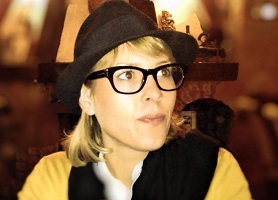 Sonja Viličić was born in Serbia. For almost 10 years Sonja lived in Budapest where she finished University and worked for the J.D.C. (Joint Distribution Committee) in various positions as informal Jewish educator, including the program director of the Szarvas youth camp and the Educational Director of regional programs with the aim of Jewishly educating youth and students through informal educational frameworks. Sonja is a graduate of the Melton Senior Educators Program at the Hebrew University of Jerusalem.
Sonja Viličić was born in Serbia. For almost 10 years Sonja lived in Budapest where she finished University and worked for the J.D.C. (Joint Distribution Committee) in various positions as informal Jewish educator, including the program director of the Szarvas youth camp and the Educational Director of regional programs with the aim of Jewishly educating youth and students through informal educational frameworks. Sonja is a graduate of the Melton Senior Educators Program at the Hebrew University of Jerusalem.
Today, Sonja lives in Belgrade, Serbia where she is one of the founders and Executive Director of NGO Haver Srbija whose aim is to introduce non-Jewish population to culture, history and tradition of Jewish people as a step in confronting prejudices, misconceptions and discrimination. She also co-runs the Matara youth leadership training program of the Rothschild Foundation (Hanadiv) Europe at Limmud UK.
S.L. (Sandi) Wisenberg has participated in the Vienna and Sofia Bet Debora conferences. She is named for her grandfather Solomon Louis Wisenberg/Waysenberg, who immigrated to the US about 100 years ago from Kishinev, Moldavia/Moldova. Three of her grandparents were born in Eastern Europe, and they and her parents lived mostly in the American South. She was born in 1955 and grew up in Texas. She’s the author of a book of short stories, The Sweetheart Is In; a book of essays, Holocaust Girls: History, Memory & Other Obsessions; a personal/political chronicle, The Adventures of Holocaust Girls; and a creative nonfiction book of verbal collage, Moments in Selma & Other Glimpses of the South (with more Jews than you would think), forthcoming in 2015 from the University of Georgia Press. She lives in Chicago. She had a bachelor’s in journalism from Northwestern University and a Master of Fine Arts in fiction writing from the University of Iowa.
Svetlana Yakimenko, Director of Project Kesher for Russia, Ukraine, Belarus, Moldova, Georgia since 1989
Svetlana directs the operations of the largest Jewish women’s organization in Russia, 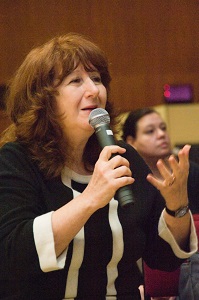 Ukraine, Belarus, Moldova, Georgia and one of the fastest growing women’s advocacy organizations in the region. Project Kesher operates in 160 communities directly engaging 3,000 Jewish women and, through them, tens of thousands of members of their friends and families in programming to build Jewish identity and Jewish communal life. Svetlana oversees leadership training of Jewish women, more than 500 of whom now work in paid and lay Jewish communal positions and the network of 90 multi-faith, multi-national women’s coalitions that engage more than 100,000 women in advocacy on issues such as domestic violence, trafficking in women and religious and ethnic tolerance. Svetlana facilitated more than 100 leadership seminars in Russia, Ukraine, Belarus, Georgia and Israel.
Ukraine, Belarus, Moldova, Georgia and one of the fastest growing women’s advocacy organizations in the region. Project Kesher operates in 160 communities directly engaging 3,000 Jewish women and, through them, tens of thousands of members of their friends and families in programming to build Jewish identity and Jewish communal life. Svetlana oversees leadership training of Jewish women, more than 500 of whom now work in paid and lay Jewish communal positions and the network of 90 multi-faith, multi-national women’s coalitions that engage more than 100,000 women in advocacy on issues such as domestic violence, trafficking in women and religious and ethnic tolerance. Svetlana facilitated more than 100 leadership seminars in Russia, Ukraine, Belarus, Georgia and Israel.


